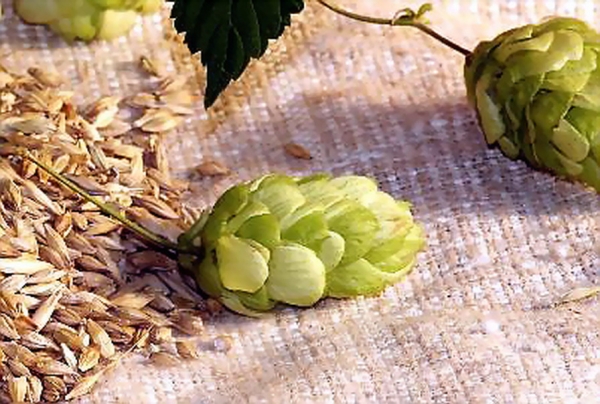So you want to make some beer, huh?
You might be about to, or may have already, taken the plunge and purchased some basic equipment and perhaps a beer ingredient kit. Good for you! Welcome to the world of home brewing, and to what may very well, become an all-consuming hobby.
Talk to most home brewers, and you will hear a similar story: "I've always liked beer, and I wanted to try and make it, as it seemed pretty simple." This statement is pretty much true, especially when starting out using ingredient kits. You get all the ingredients and the step-by-step instructions. All you need is some basic equipment: a big pot, a fermenting bucket, a bottling bucket, some tubing, bottles, caps, a capper, and perhaps a bottle filler. Voila, beer!

Get Brewing With Some Essential Gear
Now if you enjoyed that first beer brewing experience, you will probably try it this way again... and maybe again. At the same time, you will be researching about ways to perfect the craft. THAT, my brewing friend, is where things get interesting.
Making my first batch, a clone kit called "Irish Stout", was fun and turned out to be delicious. My next was the same kit, to which I added cocoa and coffee, based on some HomeBrewTalk forum reading. Again, GREAT, and this got me thinking about developing my own recipes - why not?

Understand Which Ingredients Work Best
My first self-made recipe was a mocha java stout made using the "partial mash" technique (a combination of malt extracts and malted grains). It came out great, leading me to the inevitable next step... all-grain brewing.
My desire to brew an all grain recipe sent me on my way to become a better brewer (and set in motion a chain of purchases that made my wife a bit nervous). But I digress; this is an article for beginning brewers, and so I will give you words to live by here.
You will be nervous making the first and second batches, even from kits. Just relax, 'it ain't rocket science'. Once you master this, you will probably want to brew using all-grain recipes (especially if you enjoy cooking- but that's for another article), and you should. It is easy, and only requires a few new equipment items, such as a mash tun and an extra pot. Maybe a turkey fryer. Whaaaaat? Keep reading.
You are going to hear strange foreign words for some of the equipment, but soon those words will make sense and become part of your vocabulary. My point is, don't let that worry you. For example, a mash tun is a vessel used to hold your grain and hot water at a set temperature for a set amount of time. Most commonly, this is a cooler with a strainer and valve at the bottom for draining.
Oh, and remember I mentioned purchases? I was consumed with buying equipment (or parts to DIY my own equipment), when, just as I was told I probably would, I got tired of bottling. Hellooooo Craigslist? I needed a chest freezer, a temperature controller (get used to the term "STC 1000 build"), and old soda kegs with tap lines! Wait, I need a Co2 tank and gas regulator too!
In short, to quote Charles Papazian (Google if you don't recognize): "Relax, don't worry, have a homebrew".

Experiment And Refine Your Brewing Process
It will take a little while before you are the next Eberhard Anheuser, so get the basics nailed down first - maybe a simple SMASH recipe.
As you continue your journey, you will can keep it as simple or as complex as you want. For instance, you might agonize over your water chemistry (or not), or study the alpha and beta values of a certain hop variety to choose for your recipe. Don't go there yet. The KISS principle applies here: Keep It Simple, Stupid!

The Goal Is To Make Beer And Have Fun Doing It
This is as much of a hobby for folks who just want to make homebrew as it is for folks who are like detail-obsessed mad scientists, or folks who want to enter beer in competitions.

Saving Notes From Each Brewday Is Very Helpful
Make it fun, keep learning, and you will have a very rewarding hobby.
Oh, and get ready to spend some cash when you really catch the beer bug....

You might be about to, or may have already, taken the plunge and purchased some basic equipment and perhaps a beer ingredient kit. Good for you! Welcome to the world of home brewing, and to what may very well, become an all-consuming hobby.
Talk to most home brewers, and you will hear a similar story: "I've always liked beer, and I wanted to try and make it, as it seemed pretty simple." This statement is pretty much true, especially when starting out using ingredient kits. You get all the ingredients and the step-by-step instructions. All you need is some basic equipment: a big pot, a fermenting bucket, a bottling bucket, some tubing, bottles, caps, a capper, and perhaps a bottle filler. Voila, beer!

Get Brewing With Some Essential Gear
Now if you enjoyed that first beer brewing experience, you will probably try it this way again... and maybe again. At the same time, you will be researching about ways to perfect the craft. THAT, my brewing friend, is where things get interesting.
Making my first batch, a clone kit called "Irish Stout", was fun and turned out to be delicious. My next was the same kit, to which I added cocoa and coffee, based on some HomeBrewTalk forum reading. Again, GREAT, and this got me thinking about developing my own recipes - why not?

Understand Which Ingredients Work Best
My first self-made recipe was a mocha java stout made using the "partial mash" technique (a combination of malt extracts and malted grains). It came out great, leading me to the inevitable next step... all-grain brewing.
My desire to brew an all grain recipe sent me on my way to become a better brewer (and set in motion a chain of purchases that made my wife a bit nervous). But I digress; this is an article for beginning brewers, and so I will give you words to live by here.
You will be nervous making the first and second batches, even from kits. Just relax, 'it ain't rocket science'. Once you master this, you will probably want to brew using all-grain recipes (especially if you enjoy cooking- but that's for another article), and you should. It is easy, and only requires a few new equipment items, such as a mash tun and an extra pot. Maybe a turkey fryer. Whaaaaat? Keep reading.
You are going to hear strange foreign words for some of the equipment, but soon those words will make sense and become part of your vocabulary. My point is, don't let that worry you. For example, a mash tun is a vessel used to hold your grain and hot water at a set temperature for a set amount of time. Most commonly, this is a cooler with a strainer and valve at the bottom for draining.
Oh, and remember I mentioned purchases? I was consumed with buying equipment (or parts to DIY my own equipment), when, just as I was told I probably would, I got tired of bottling. Hellooooo Craigslist? I needed a chest freezer, a temperature controller (get used to the term "STC 1000 build"), and old soda kegs with tap lines! Wait, I need a Co2 tank and gas regulator too!
In short, to quote Charles Papazian (Google if you don't recognize): "Relax, don't worry, have a homebrew".

Experiment And Refine Your Brewing Process
It will take a little while before you are the next Eberhard Anheuser, so get the basics nailed down first - maybe a simple SMASH recipe.
As you continue your journey, you will can keep it as simple or as complex as you want. For instance, you might agonize over your water chemistry (or not), or study the alpha and beta values of a certain hop variety to choose for your recipe. Don't go there yet. The KISS principle applies here: Keep It Simple, Stupid!

The Goal Is To Make Beer And Have Fun Doing It
This is as much of a hobby for folks who just want to make homebrew as it is for folks who are like detail-obsessed mad scientists, or folks who want to enter beer in competitions.

Saving Notes From Each Brewday Is Very Helpful
Make it fun, keep learning, and you will have a very rewarding hobby.
Oh, and get ready to spend some cash when you really catch the beer bug....



